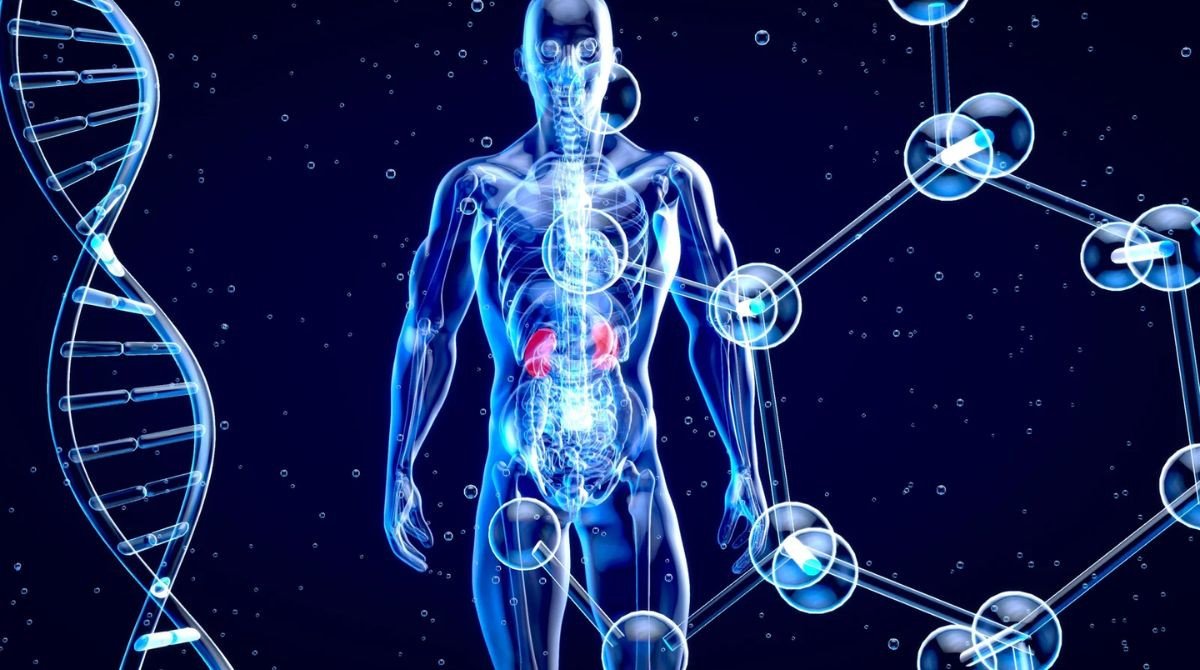- December 18, 2025

In recent years, the study of the microbiome—the complex community of microorganisms living in and on our bodies—has become a cornerstone of life sciences research, particularly in the field of gut health. The gut microbiome, comprising trillions of bacteria, viruses, fungi, and other microbes, plays a crucial role in maintaining overall health and influencing disease states. This article explores how life sciences are advancing our understanding of the gut microbiome and its impact on health and disease and how these insights are shaping new approaches to treatment and wellness.
The Gut Microbiome
The human gut microbiome is an intricate ecosystem of microorganisms that reside primarily in the intestines. These microbes are essential for numerous physiological functions, including digestion, metabolism, and immune system regulation. The microbiome’s composition varies between individuals and is influenced by factors such as diet, environment, genetics, and lifestyle.
Key Functions of the Gut Microbiome:
1. Digestive Health: The gut microbiome aids in breaking down complex carbohydrates, fibers, and other nutrients that human enzymes cannot digest. This process produces short-chain fatty acids (SCFAs) like butyrate, which are crucial for maintaining gut health and providing energy to intestinal cells.
2. Immune System Regulation: The gut microbiome plays a critical role in modulating the immune system. It helps educate immune cells, maintain the integrity of the gut barrier, and regulate inflammation. A balanced microbiome supports immune function, while dysbiosis (microbial imbalance) can lead to autoimmune diseases and chronic inflammation.
3. Metabolic Function: Microbes in the gut influence metabolism by synthesizing vitamins, hormones, and other bioactive compounds. They also affect how the body stores fat and responds to insulin, impacting conditions like obesity and diabetes.
4. Protection Against Pathogens: Beneficial microbes in the gut compete with pathogenic organisms for resources and space, preventing the overgrowth of harmful bacteria and protecting against infections.
Innovations in Life Sciences Enhancing Microbiome Research
Life sciences advancements are transforming our understanding of the gut microbiome and its impact on health. These innovations include:
1. Advanced Sequencing Technologies
Next-generation sequencing (NGS) technologies have revolutionized microbiome research by allowing researchers to analyze the genetic material of gut microbes in unprecedented detail. Metagenomic sequencing, for example, provides insights into the diversity and function of microbial communities without the need for culturing individual species. This technology enables scientists to identify microbial species, their functional genes, and their interactions within the gut ecosystem.
2. High-Throughput Metabolomics
Metabolomics is the study of metabolites—small molecules produced by biological processes. High-throughput metabolomics allows researchers to analyze the metabolic products of gut microbes and their effects on host health. By profiling metabolites, scientists can identify biomarkers of disease, understand metabolic pathways influenced by the microbiome, and develop targeted therapies.
3. Functional Genomics and Systems Biology
Functional genomics and systems biology approaches help elucidate the roles of specific genes and microbial interactions in gut health. By studying gene expression patterns and microbial interactions, researchers can uncover how changes in the microbiome contribute to disease and identify potential therapeutic targets.
4. Computational Tools and Bioinformatics
The complexity of microbiome data requires sophisticated computational tools and bioinformatics techniques for analysis. Machine learning algorithms and statistical models help interpret large-scale microbiome datasets, identify patterns, and predict microbial impacts on health. These tools enable researchers to integrate microbiome data with other omics data (genomics, proteomics) for a comprehensive understanding of gut health.
5. Personalized Medicine and Microbiome-Based Therapies
Personalized medicine approaches are being developed based on individual microbiome profiles. By tailoring treatments to an individual’s specific microbiome composition, researchers aim to improve the efficacy of therapies for conditions such as inflammatory bowel disease (IBD), irritable bowel syndrome (IBS), and metabolic disorders. Probiotics, prebiotics, and fecal microbiota transplantation (FMT) are examples of microbiome-based therapies being explored for their potential to restore microbial balance and alleviate disease symptoms.
Conclusion
Life sciences innovations have significantly advanced our understanding of the gut microbiome and its crucial role in health and disease. From cutting-edge sequencing technologies and metabolomics to personalized medicine and microbiome-based therapies, these advancements are reshaping our approach to gut health. As research continues to evolve, the potential for microbiome-based interventions to improve health outcomes and address a range of diseases becomes increasingly promising. By harnessing the power of the gut microbiome, we move closer to a future where personalized and effective treatments for a variety of conditions are within reach